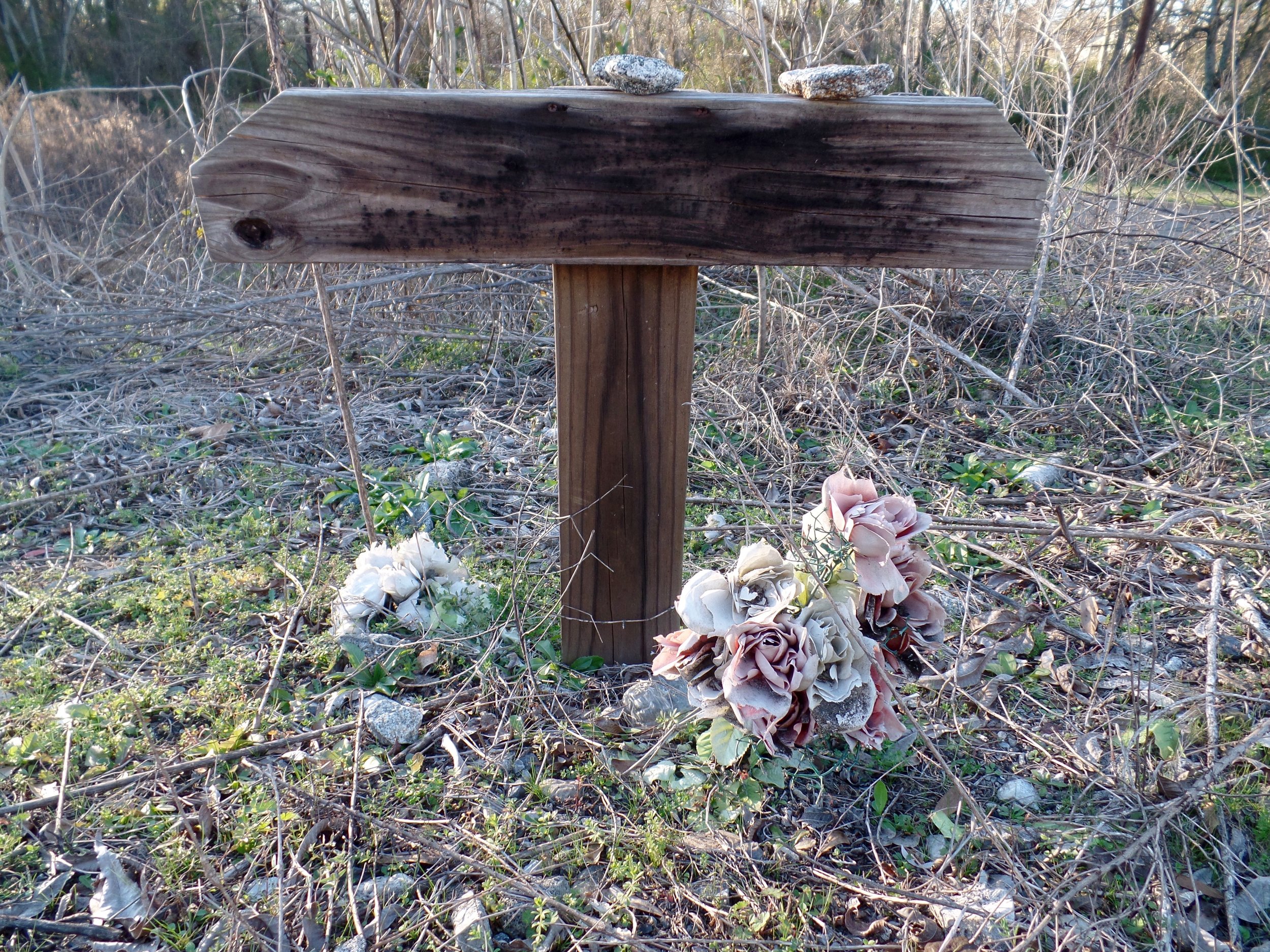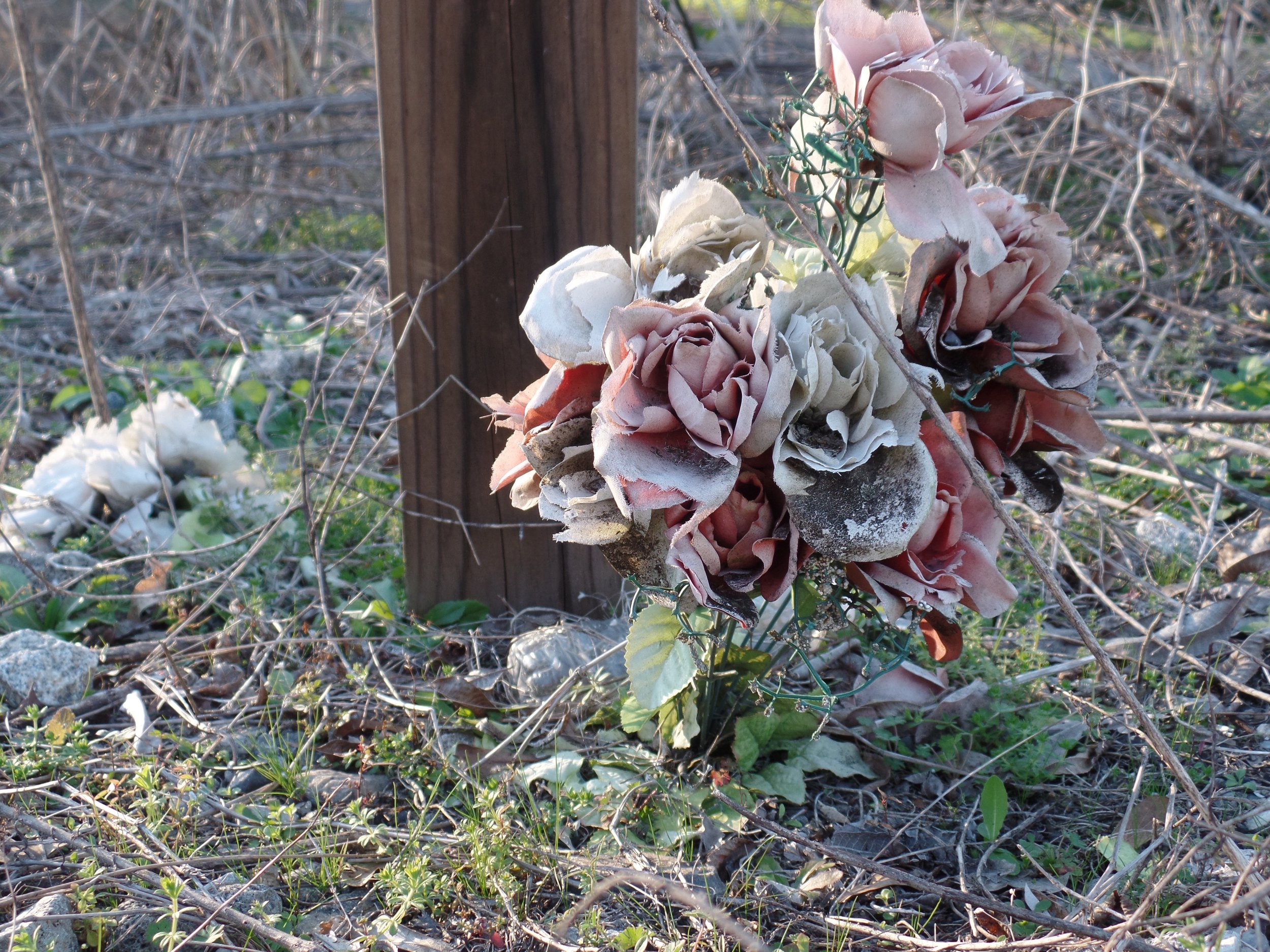When I was growing up, my brother and I would poke fun at our dad for what we called his “jukebox stories.” Those were the stories that we had heard time and again - in certain situations, we could see the gears shifting in his mind, as though someone had pressed “G5” or “A2.” Like a machine, he retrieved the story and told it, just as we’d heard it every time before. Those are the stories that a person crafts to perfection; the kind to which we all make little edits that kick up the drama or the punch line. We tell them so many times that we begin to forget what really happened.
This story is not a jukebox story. To write it means to retrieve what I’ve never told, and what has been gathering dust since 2012.
---
I remember wondering if I'd chosen the right thing to wear on my first day of teaching. In the gym that morning, before I’d met any students, before I knew what it was to love and lose or to cry from frustration or laugh with the purest joy with those kids, I sat in a folding chair behind our principal and a microphone. To my horror, part of the procedure of the first day of school was that each teacher would be handed a list of their homeroom students and then read it aloud behind the microphone and in front of the entire student body. This would be the first in a long line of surprises that year.
I had never been shy about public speaking, but my list of names included names like Lil’Marvin, Jadarrius, Natarrius, none of which I was certain of how to pronounce. Names have always been important to me as I grew up with a double name myself, and I know I would immediately lose credibility if I stood in front of my students and butchered their names. It was especially important to me that I got it right as I was one of two white people in the entire school - the other being the history teacher across the hall. In a panic, I leaned over the back of my chair as subtly as I could to ask for help and scrawled the phonetic pronunciation of each name in lipliner (all I had in my purse) on my sheet of paper. I got through it, amazingly, without flubbing too badly, and the relief I felt that I hadn’t embarrassed myself or my kids was palpable.
I walked like a mother goose out of the gym with my 11 homeroom students following behind me, putting on a good show of being well-behaved for the first day of school, most likely wondering who this weird white girl was and how much they could get away with in her class. They took their seats at their desks and began their first activity, making name tents for themselves so that I could see each name with a face and begin to link them. I surprised myself by learning all 80 of my students’ names within a week.
In that first period class was a mixture of strong personalities - a clear trifecta of the most popular, pretty, and socially high-ranking girl flanked by her two best friends - one soft-spoken athlete with a penchant for laziness and one sharp as a tack beauty who was pint-sized, but packed a big punch - once, literally so, through the door of my classroom. These girls were as intimidating to me as if I were their age - I wanted them to like me, to love me, to approve of me, to confide in me...all that would come with time, but on that first day, they made me feel like a middle schooler again.
The gaggle of boys that I taught in that class were oddly placed together. Lil’Marvin, the oldest by a couple of years, was kind, quiet, smart, and dutiful. Tyrone, a small kid with glasses, was clearly the smartest in the class, but held back so as not to be singled out. Caleb was an early favorite of mine and patented his “Super Happy Dance” which included a twirl and three snaps at the end. Antonio, OJ, Braxton and Jadarrius were the clowns - hilarious, sweet, goofy 11 year olds who were always aware of my mood and my feelings, and went out of their way to make jokes with me, especially if the rest of the class was acting up.
There is more to say about that first year than I could possibly write. Lots of it, sadly, I’ve probably forgotten as a result of not being more prudent and noting things as they happened. One day, though, toward the end of the year, sticks out.
---
It was late spring and it was hot the way only Alabama can get hot. The dirty hallways of the school had started collecting wet dust as the muggy air from outside filtered into our building. All of the students were preparing to go on a field trip to the McWane Center, a hands-on science museum in Birmingham. This was a big trip for these students, many of whom had never been outside a 10-mile radius of their hometown.
Jadarrius, one of my goofballs from first period, bounded down the hallway to me clutching his progress report and permission slip, both of which required my signature. It was Thursday, the day before our trip.
“Did you see what my report says, Mi’ Mac?”
“I do see that - your grades look pretty good! Except for this PE grade - what’s up with that?”
“Man, Mr. P always be on me.” He grinned. “Did you see what else?” he asked pointedly.
As I looked over the bottom half of his progress report, I noticed something scrawled in handwriting. "Jadarrius Warbington promoted to 9th grade." It was in his handwriting.
“Yup, they promotin’ me to 9th grade. I’m too smart.” The “too” was punched like a sandbag - a habit all of my students had. This was a slang emphasis, “He too fast!” or “Man, they too bad.” It always made me smile.
“I do see that! Wow, Mr. Wallace wrote that himself, huh?” I asked, smiling back at him. He knew that I knew this wasn’t a real note, and so it became an inside joke immediately. The wit and quickness of my kids always surprised me - not because I was surprised "these kids" were that smart, but because I had forgotten any 11-year-old could be.
“Looks like I’ll miss you next year, buddy. I hate that!” And with a wink, I handed his slips back to him as he took off down the hallway. “Thanks, Mi’ Mac!”
---
I had been accepted to work TFA’s summer Institute in Mississippi that summer, and there was a staff conference in Memphis we were all required to attend. The day after the McWane Center trip, I made the drive. The trek through Mississippi to Memphis is not a pretty or pleasant one, and I left that Saturday morning feeling sluggish from a long week of school. I remember stopping on the road to get a 5-Hour Energy, which I’d never had before, but felt was necessary to get to Tennessee in one piece.
My cell phone service spotted in and out as I drove through tiny towns with names I saw and forgot immediately. About three hours into my five hour drive, I called my mom to chat and keep me awake. A few minutes into our conversation, my call waiting beeped. It was Amber, one of my first period girls. It wasn’t unusual for my students to call me, but I always answered unless (as they knew) they called after 9. I told my mom I’d call her back.
“Mi’ McAnnally?”
I can't remember exactly how she said it, still, to this day. In the course of twenty seconds, she told me that Jadarrius had been hit by a train and killed.
Because this was middle school we were talking about, I assumed that she had gotten the story second or third hand and that some, if not all, was incorrect.
“Juvares down there with everybody at the train tracks,” she told me after I pressed her as to whether the story was true. “You can call him.”
Juvares was one of my most mild-mannered boys. He was always shy and kept to himself. He had a heart of gold, so I knew I could get a straight answer from him.
When I called his phone, he answered immediately.
“Juvares, it’s Ms. McAnnally. Are you at the train tracks?”
“Ye’ ma’am.”
“Did something happen to Jadarrius?”
“Uh, ye’ ma’am. He had got hit by the train. They backin’ the train up right now to try to get him out.”
A wave of relief washed over me as I hoped for the best. They’re backing the train up to rescue him, I thought to myself. He’s pinned under the train, between the train and the tracks. I had no idea, of course, whether it was even possible for a person to be pinned between a train and the tracks, but that's what I wanted to believe, so I believed it.
“Okay. Is he alive? I just talked to Amber and she heard he had died.” It seems strange to ask such matter-of-fact questions about something so delicate and serious, but it was necessary to get exactly what had happened out of my kids.
“No ma’am, I don’t think so. I think he dead.”
“Is the conductor of the train or any other adult near you? Can you put me on the phone with them?”
“Ye’ ma’am, hold on.”
I waited, my blood pulsing through my veins like a drumbeat, for a credible adult to be handed the phone.
“Yes, hello?”
“Hi,” I struggled for how to even introduce myself. “My name is Mary Catherine McAnnally - I’m a middle school teacher at York West End. Some of my students are saying that a boy from our school has been killed by a train. Do you know what happened?”
“I know a boy was hit by a train, and they backin’ the train up right now to try to find him.”
No one knew know that his body had been thrown off the tracks by the sheer velocity of the train upon impact. No one know he was lying in the bushes half a mile back, because the two boys who were with him were, I can only imagine, too shell shocked to speak.
“Thank you,” I said. “Will you please have someone call me as soon as you know anything?”
I hung up and immediately dialed my principal. Adrenaline was soaring through my body. It would have been anyway, but because I’d had a power drink to stay awake, my hands were shaking. I was driving through a construction site, and my cell phone signal was weak.
I called Mr. Wallace twice, but he didn’t answer, so I left him what I’m sure was a harrowing voicemail and kept driving, calling my students as many times as I could for updates along the way.
Fifteen minutes later, my phone rang. It was Mr. Wallace.
“Miss McAnnally?” He always began conversations with me this way. He knew I was on the other end of the line, but he waited for confirmation every time.
“Yes, sir.” I confirmed.
“I just got back from the train tracks.”
The next few words spoken are seared into my mind for so many reasons - it was the only time I can remember losing my sense of decorum of professionalism; the only time I can remember having a feeling and feeling it right out loud with no filter or thought of how I might be perceived; and, having never lost anyone in my life, it was the only time I’ve ever gotten this kind of news.
“Is he alive?” My voice cracked and the words hung in the air.
“No,” Mr. Wallace said. But it sounded like, “Naw.” A casual response. Something you say when someone offers you another helping or the access to the remote. Where was the formality? Where was the carefully chosen response? Where was the grief?
“What??” I am sure I shrieked it. I was indignant at what seemed like his complete lack of care or sensitivity.
“He’s dead,” he said.
It would take me years to understand that Mr. Wallace had made these phone calls many times in his life; that his casual tone was survival, and not carelessness. I cried on the phone with my principal, a man thirty years my senior. Hours on an interstate between us, but, as it had always been, worlds between us.
---
The 7th grade boys held a vigil for Jadarrius the Monday after the Friday he died, and I wasn’t there because I was in Birmingham for a bridal shower I was hosting. I remember feeling so ashamed when I tried, alone, to find the train tracks where Jadarrius had been killed.
It seemed like it should have been easy, to follow a major railway through this tiny town, but it proved nearly impossible without help. Despite the single grocery store and storybook shotgun houses, I had to ask several people for directions to the tracks. The GPS app on my phone doesn’t pick up the back roads of York, Alabama, so the directions I was given were old-fashioned, verbal, “turn-right-right-left-straight-until-landmark” directions. As I wove through the neighborhoods, my heart grew heavier and heavier. Why had I not visited every child at home? How could I have missed their first day back from this tragedy?
I found a strip of railroad, drove across it, and parked my car on the side of the street.
It was only then that I noticed Braxton. Braxton and Lil'Marvin had been with Jadarrius that day, so it was striking to see him standing by the very same train tracks.
He was standing, half-heartedly kicking a soccer ball, when I pulled up. His mom had taken him out of school the rest of that week, and who could blame her? That made this interaction our first of significance since Jadarrius had died.
“Braxton!” I called out.
“Oh, hey, Miss Mac.” He walked over in black basketball shorts and a red hoodie.
“How are you?” I felt stupid even asking the question, but it was all I knew to say.
“I’m okay.”
We hugged for a long time. He asked why I was here and I told him that I wanted to see the memorial the boys had made.
“I can show that to you,” he said. “Follow me.”
He led me across the tracks, and I instantly felt like I was walking on holy ground. When I’d chosen this spot to pull over, I had no idea how close I was to the spot Jadarrius died. My car was 15 yards or so from the memorial, which was on the other side of the tracks from my car. Braxton and I walked a few steps together, then he stopped, and pointed.
“It’s right there,” he said. This was clearly as far as he was willing to go.
“Okay,” I said. “I’ll be right back.”
I walked closer and found a crude wooden cross, clearly hammered by the boys themselves, and made out of plywood they’d found in someone’s garage. On it, they’d painted his name in black paint. The image of child’s writing on a child’s tombstone is very vivid to me, still, and hard to think about - it was such a pure and beautiful tribute to such a horrific and unjust event. Remembering it now, it feels like the moment in Schindler’s List when, in a sea of black and white, a little girl in a red coat appears. A bit of life in the midst of death. Altogether out of place, and somehow perfect.
I stood, looking at the memorial, praying for Jadarrius and for all my students, crying, but also aware that my student was nearby - I didn’t want to fall to pieces in front of him.
When I walked back and stood next to Braxton, I asked him what had happened. He and I were close, and I knew, much like his refusal to go near the memorial, that he wouldn’t tell me if he didn’t want to.
As we walked back across the tracks toward my car, I don’t remember the words he said, or the order of events - I do remember him telling me that the velocity of the train threw Jadarrius off the tracks several yards from the point of impact, and that Braxton and Lil’Marvin’s first job after losing track of him was to search out where his body had landed. He described this to me in a calm, adult tone that I’ve never heard before or since. He wasn’t crying, or overwrought; he was relaying the events as though he was writing an expository essay for my class. First this, then that, finally, this.
The idea that Jadarrius would have been thrown by the train hadn’t occurred to me, and I was processing the thought of my two little boys finding his body while hearing one of them tell me about it first-hand. It was surreal. I was lost in my own mind and still trying to stay present for the sake of this person, this adult, in front of me. Braxton walked a few steps backward, away from the tracks, and motioned for me to do the same.
“Miss Mac?”
I was jolted from thought. “Yeah?”
And this moment I’ll never forget.
“Don’t you hear it?” he said, putting his foot on his soccer ball to keep it from rolling.
“Hear what?” I asked, genuinely confused.
“It’s coming,” he said.
I turned to look where his eyes were pointed and saw the train, speeding down the tracks, left-to-right, whooshing past us.
How couldn’t I have heard that? I thought. Why didn’t I hear that?
In my life, there have been many moments of joy and sadness, too big to contain in a single heart, that had to spill out through my words or through my tears. This moment, though one of the most important to me to this day, was so other-worldly that it stopped my heart in its tracks.
There were no words, no tears. There was only standing next to my 11-year-old student, enveloped by the noise and horn of the train that had killed his best friend five days before.
A train’s horn was a lullaby for me as a child - a comforting, faraway reminder that someone was always going somewhere, even while I was sleeping. Since that day, a train’s horn has been the toll of a bell, memorializing that someone young and precious died, even while I was living.
It pains me to think that writing this down is selfish; that his life has been absorbed into my own story. By telling it to you now, has Jadarrius stopped being a life of his own? And if I tell it too many times, will the pieces of that story fracture and fly away? This story, crudely told, is offered alongside a cross by the side of the train tracks, name now faded, top board broken off from years of weather damage. Things that will never be enough.
Things that are all we can manage.




